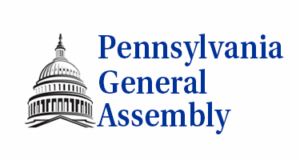PA Health Policy Update for May 30
The following is an update of selected state health policy developments in Pennsylvania from May 26 – 30. (Some of the language used below is taken directly from state documents).
Governor Shapiro
Governor Shapiro joined Department of Community & Economic Development (DCED) Secretary Rick Siger in Pittsburgh this week to discuss supporting Pennsylvania’s life science and innovation economy. Governor Shapiro highlighted his administration’s FY 2025-26 budget proposal to invest $50 million to support large-scale innovation and life science sector growth. Find additional information in this press release.
General Assembly
The state House of Representatives and Senate were recessed this week. Both chambers are scheduled to return to Harrisburg on Monday, June 2. The following is an overview of selected health care-related legislative activity currently scheduled for next week.
- The House Aging & Older Adult Services Committee will meet on Monday, June 2 at 10:00 a.m. in Room G-50 of the Irvis Building for a public hearing on House Bill 1310, which establishes a minimum budget adjust factor (BAF) floor at $0.90 for skilled nursing facilities. The meeting will be livestreamed here.
- The House Health Committee will meet on Tuesday, June 3 at 9:30 a.m. in Room 523 of the Irvis Building to consider the following bills. The meeting will be livestreamed here.
- House Bill 425, which establishes a J-1 visa waiver primary care physician grant program.
- House Bill 583, which requires the Department of Human Services to establish a benefit package for dental services for Medicaid.
- House Bill 1460, which provides for more oversight of health care entity merger and acquisition activities.
- The House Human Services Committee will meet on Wednesday, June 4 at 9:15 a.m. in Room G-50 of the Irvis Building to consider two suicide prevention related bills, House Bill 415 and House Bill 564. The meeting will be livestreamed here.
Department of Human Services
The Office of Mental Health & Substance Abuse Services (OHMSAS) has issued a bulletin announcing it has revised the forms for voluntary and involuntary commitment evaluations and created a unified procedure for updating all forms utilized under the Mental Health Procedures Act (MHPA) to ensure consistency statewide. The revised forms include the following.
- MH 781 Consent for Voluntary Inpatient Treatment
- MH 783 Application for Involuntary Emergency Examination and Treatment
- MH 783A Explanation of Rights under Involuntary Emergency Treatment
- MH 783B Explanation of Warrant
- MH 785 Petition for Involuntary Treatment (Sections 304 and 305)
- MH 788 Petition to Transfer for Persons in Involuntary Treatment (Section 306)
The Department of Human Services (DHS) has shared the following materials utilized at the Medical Assistance Advisory Committee (MAAC) meeting on May 22.
- Prior Authorization Guidelines Feedback – April 24, 2025 Public Comment
- Office of Developmental Programs (ODP)
- Office of Mental Health & Substance Abuse Services (OMHSAS) (Consumer Sub-MAAC Presentation)
- Office of Medical Assistance Programs (OMAP)
- Office of Long-Term Living (OLTL)
- Medical Assistance Bulletin List
Department of Health
The Department of Health (DOH) has given notice that the temporary scheduling of several Nitazene substances, compounds, and mixtures will expire on June 3, 2025. Find additional information in this Pennsylvania Bulletin notice.
Independent Regulatory Review Commission 
The Independent Regulatory Review Commission (IRRC) has announced that it approved the State Board of Pharmacy’s final-form regulation that implements Act 140 of 2020, which establishes criteria for pharmacy technician training programs, as well as the standards of practice and registration fees for pharmacy technicians and pharmacy technician trainees.
IRRC has also approved the State Board of Medicine’s final-form regulation effectuating Act 79 of 2021. The regulation provides for definitions, written agreement requirements, responsibilities of supervising physicians, countersignature requirements, and prohibitions on practice and prescribing by physician assistants. It also updates terminology and removes outdated provisions.
State Board of Psychology
The State Board of Psychology has published proposed rulemaking to update, revise, and clarify continuing education requirements for psychologists. Find the proposed rulemaking in this Pennsylvania Bulletin notice.
Around the State
- Senate President Tempore Kim Ward’s (R-Westmoreland) comments about the state budget process and commitment to not raise taxes were the focus of an article by the Tribune-Review.
- Spotlight PA has published an article about the current debate to legalize recreational cannabis and whether a deal will be reached by the June 30 budget deadline.
- WHYY has written an article about a rally held by health care advocates in Pennsylvania to caution about the potential impact of certain Medicaid proposals included in the federal reconciliation bill that recently passed the U.S. House of Representatives.
Stakeholder Meetings
DHS – Long-Term Services & Supports Subcommittee – June 4
The Long-Term Services and Supports (LTSS) Subcommittee of the Medical Assistance Advisory Committee (MAAC) will hold its next public meeting on June 4 at 10:00 a.m. The meeting will be held virtually. Register to participate here.
Patient Safety Authority – June 17
The Patient Safety Authority has announced it will hold a meeting of the Authority’s board on Tuesday, June 17 at 1:00 p.m. The meeting will be held virtually and is open to the public. Find additional details on how to participate in this Pennsylvania Bulletin notice.




